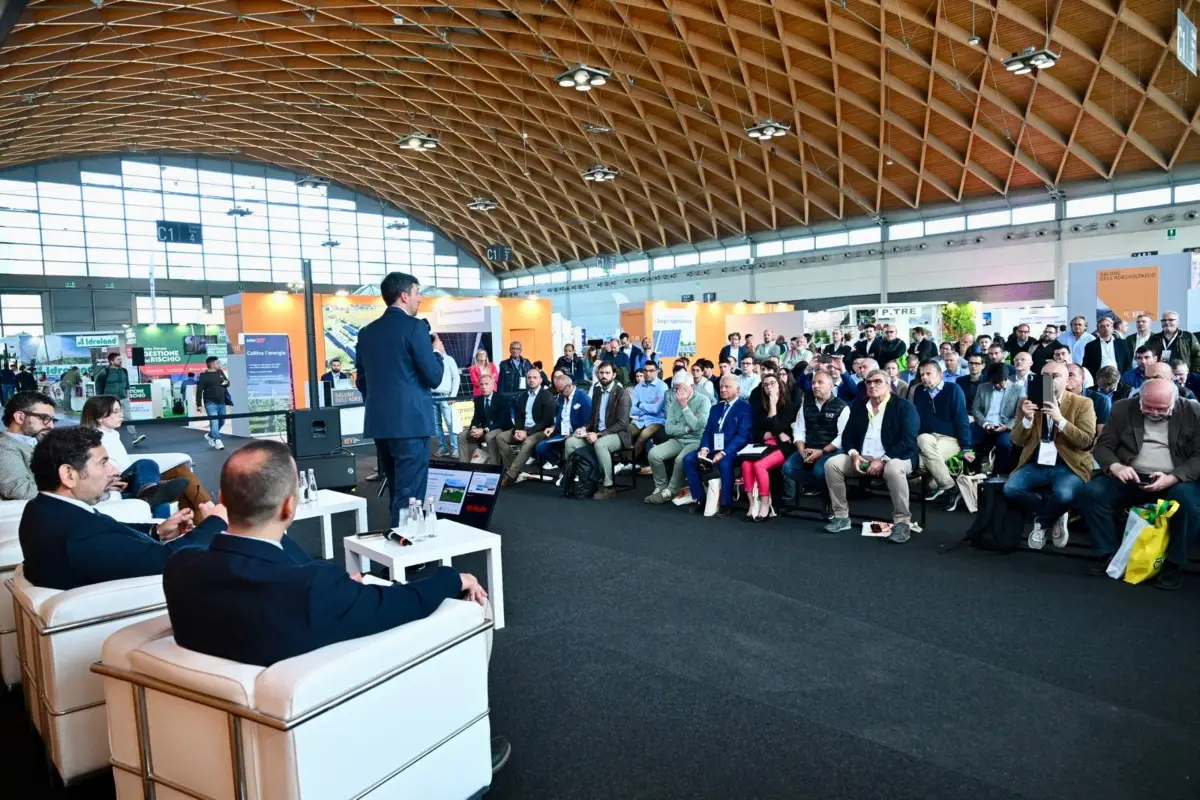
Macfrut: all the benefits about medicinal plants
During the fair, indoor cultivations and applications in the pharmaceutical sector will be discussed

Indoor grown medicinal plants, fourth range evolutionary products, spiced ice cream. These are some of the events on the first day of Macfrut (Wednesday 8 May) opened with a full audience in the Rimini exhibition pavilions.
Vertical farming: the importance of multidisciplinary collaborations, crucial in the academic world, intersect with innovative agronomic practices to the benefit of health and quality of life. Without forgetting the need for almost continuous research, as underlined by Andrea Primavera , president of the Italian Federation of Medicinal Plant Producers (Fippo). It is around these concepts that the conference "Let's shed light on medicinal plants: Experience of indoor cultivation and applications in the pharmaceutical sector" was developed, conducted by the journalist Rosaria Amato within the Spices&Herbs Global Expo, dedicated to medicinal plants, herbs and spices. Promoted by the Department of Agro-food Sciences and Technologies of the University of Bologna (Agricultural Engineering Team - Structures and Environment), the event brought together the world of university research and its young professors together with the entrepreneurial one in direct application in protected field, concluding the conference with a guided tour of real small farms, suitable for the creation of home vegetable gardens.
The event focused precisely on this area of application in relation to the results that research is obtaining, regarding the possibility of increasing yields through ad hoc bio-engineered cultivation systems as in the case of specific light recipes for each crop ( carried out for example on Madagascar Periwinkle, Coleus and Taus Baccata). Professor Daniele Torreggiani of the Department of Agro-food Sciences and Technologies of the University of Bologna, among the organizers of the event, explained how the sector of indoor cultivation of medicinal and medicinal plants through artificial lighting systems represents an opportunity in capable of unlocking powerful synergies at the supply chain level, involving both growers and companies that provide technological solutions, systems and equipment for the sector, up to those for the transformation of personal care products.
It was Dr. Alessandro Quadri's turn to illustrate the main results obtained by the team of the Agricultural and Biosystems Engineering Laboratory of the Department of Agri-food Sciences and Technologies of the University of Bologna, as part of research carried out in collaboration with other colleagues from the department and with other departments of the University of Bologna which have made it possible to obtain increases in the yield of these compounds compared to both open field cultivation and indoor cultivation with conventional lights. The lever used in the experiments conducted is in fact constituted by a modulation of both intensity and quality of the LED light which is also used in combination with other innovative biostimulation systems.
Following this, Dr. Michele Protti , from the Laboratory of Pharmaco-Toxicological Analysis of the Department of Pharmacy and Biotechnology of the University of Bologna, a laboratory that collaborates with the agricultural engineering team in the research mentioned above, focused attention on the implications that such systems innovative cultivation methods they can have for pharmaceutical companies and beyond. The program was completed by the testimonies of two important companies in the sector: Massimo Lucchini of Idromeccanica Lucchini, who recalled how we arrived at Cultipharm, today a 6,000 square meter park, starting at the time of Expo in 2015 with the first Italian vertical greenhouse . Vincenzo Spaccapeli of Eatour demonstrated how we are moving from the paradigm of the "outside home" vegetable garden to the domestic vegetable garden, within reach of every space, presenting 'live' a modular indoor cultivation solution for the production of medicinal plants.
EFA News - European Food Agency